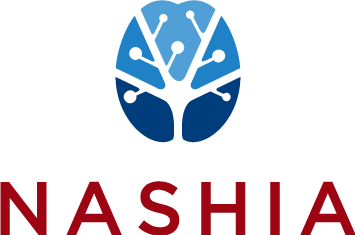Ethical Practice as a Framework for Professional Development & Advancing Technology
Self-paced learning module for keeping pace with ethics in today’s world.
5 hours of Social Work or CRC Ethics CEs included with cost.
Act fast!
This opportunity is only available until April 9, 2025!
In this engaging and informative series of sessions, we will delve into the realm of ethical practice and its pivotal role in guiding our professional journey.
These online, self-paced sessions will provide an overview of ethical practice and decision making as a foundation to further explore moral distress and technology with an emphasis on artificial intelligence. Session 1 will explore the similarities and differences between morals, ethics, and law. In addition, the concept of moral distress will be introduced and its impact on burnout and moral resilience. The second session will explore the ethical landscape in the ever-evolving world of technology, with a special focus on generative artificial intelligence. We will discuss strategies for maintaining an ethical perspective in this rapidly changing environment, equipping participants with the tools to navigate the opportunities and challenges that lie ahead.
Why should you take an ethics course? Watch the video above for our instructor’s perspective on this question.
Course Overview
Session 1 - Navigating Ethical Practice: A Compass for Self-Care and Professional Growth
Learning Outcomes:
Describe the difference between moral, ethics, and law.
Describe how the CRC code of ethics is organized.
Understand ethical decision making.
Know the difference between moral distress and moral resilience.
List strategies to increase moral resilience.
Reading Exercises
Students will choose 2 of the following articles to read:
Rehabilitation Counselors and Technology, Social Media, and Distance Counseling: Contemporary Considerations
Using the Revised CRCC Code of Professional Ethics for Rehabilitation Counselors as a Tool in Resolving Ethical Issues
A Way Forward With Multicultural Considerations, Advocacy, and Accessibility Across the 2023 Revised Code of Professional Ethics for Rehabilitation Counselor Educators and Practitioners
Ethical Dilemmas: Current and Projected Concerns Reported by Certified Rehabilitation Counselors
Moral Distress Within Rehabilitation Counseling
Session 2 - Ethical Horizons in the Age of AI
Learning Outcomes:
Identify the central ethical concerns when using technology in their practice.
Identify possible benefits to using generative AI in their practice.
Think about generative AI as a means for responsible professional development.
Cost/Certificate:
$100 per attendee.
CRC and SW ethics CEs approved for 5.0 hours, and general certificates of attendance available. Certificates are included in the cost of registration.
Speaker Bio:
Dr. Michael Kiener, PhD, CRC, is a professor and director of Maryville University’s Rehabilitation Counseling program. He has developed numerous trainings for community rehabilitation providers, vocational rehabilitation counselors, and for supervisors of state agencies. Michael has a Ph.D. in counselor education and is currently a certified rehabilitation counselor. He is a member of the National Rehabilitation Association, is a board member of the Missouri Rehabilitation Association, Eastern Chapter, and president of the Missouri Rehabilitation Association. He received the Outstanding Faculty Award for faculty who best demonstrate excellence in the integration of teaching, scholarship, and/or service and the President’s Award for Strategic Excellence: Civic Engagement, given to individuals who bring the University’s core values to life. From the Missouri Rehabilitation Association, he received Lifetime Service Award in 2022 and in 2023 received the Impact Award given to an exemplary Missouri Leader in the disability sector who has had a profound impact on changing the lives and championing the rights of people with disabilities. He has thirty publications including a co-authored book on strength-based counseling and journal articles on career decision making, action research, counseling pedagogy, and active and dynamic learning strategies.


